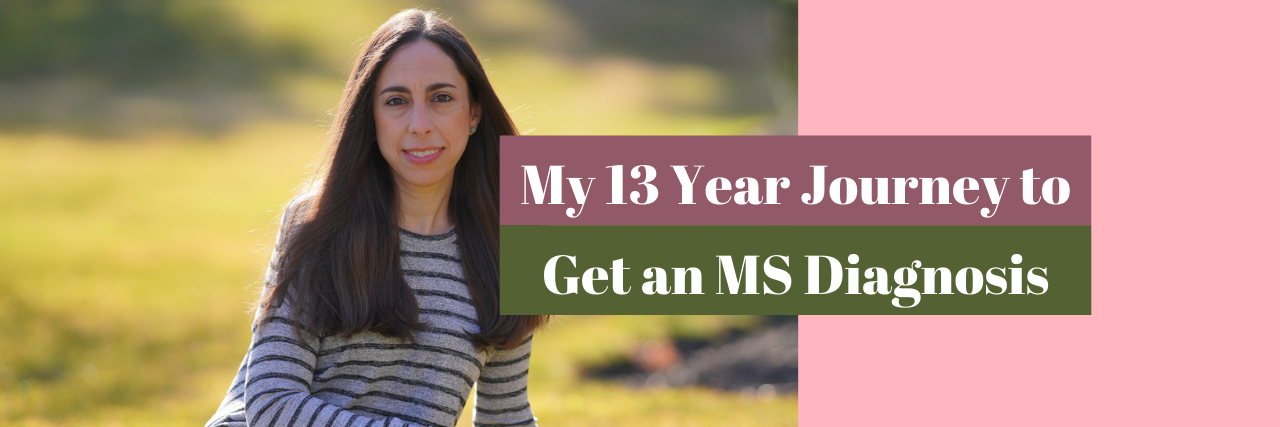It was the summer of 2005, and I was about to start graduate school for speech-language pathology. I was awarded a government grant to aid in research while earning my degree, which in turn removed the weight of building up debt during my studies. Finally! I was old enough to buy a drink at the bar, graduate school applications were in my past, and I was fortunate to be staying at my undergraduate alma mater to continue my studies. Life was good, and I was excited for what was to come.
I never thought I’d wake up one morning struggling to move. But that is exactly what happened. Right in the middle of my dreams coming true, I woke up to pain and stiffness that exhausted the strength of my legs. That was just the beginning, but my naïve self just assumed I would go to the hospital, have some lab work done, and find a simple fix for my strange ailment. In truth, that’s not at all what my journey looked like.
My strange symptoms didn’t stop, but I knew that if I took time off from school, my chances of returning were slim to none. I studied hard for two years while driving the three hours home to see doctors every three months. I saw rheumatologists, neurologists, immunologists, allergists and endocrinologists. No one could tell me what was causing my symptoms. One doctor told me to go home and have an alcoholic drink. I was told to exercise my deconditioned body, and then I’d be fine. I had no doubt that something was seriously wrong, but no one was solving my puzzle or listening to what I was saying about my symptoms.
By the time I graduated, I’d learned to live with my new body. Walking and standing were difficult. I had to walk a short distance, sit and rest, and then do a little more. My legs ached and felt as though they were running out of energy, like a car with a near empty gas tank. I was poked, prodded and poked some more. Getting lab work done constantly was my new normal as I began working my first job as a speech-language pathologist. Somewhere deep in my overwhelmed brain, a voice told me to keep living my life. A particle of hope assured me that my continued medical search would eventually result in a diagnosis.
I met my now-husband as I acclimated to my new career. He happened to be in an internal medicine residency, which was quite funny; I absolutely despised doctors at this point. Appointment after appointment, doctors listened to my story but didn’t give my case the time it needed to figure out the root cause of my symptoms. I bounced around from facility to facility like a ping-pong ball on a cement floor. I spent a lot of time on Google and joined online support groups for diseases that seemed to fit my case.
I traveled more than 1,100 miles to a world-renowned diagnostic center. I was under the impression that they wouldn’t send me home until they diagnosed me. But once again I came home without an answer. I now had not only exhausted many local facilities, but also a diagnostic facility. In addition to lab work, I had gone through MRIs, X-rays, EMGs, GI studies and even exome and genome sequencing. I was rejected from an undiagnosed diseases program, only to be accepted to another program years later. I began feeling uncomfortable in doctors’ appointments, as they questioned why I’d seen so many physicians. Why would I stop searching for an answer when these symptoms affect my life in such a profound way?
Despite the setbacks, I always managed to hold onto hope. Of course, I had moments where I felt hopeless and wanted to disappear into a cloud of agony. I spent countless nights crying on the bathroom floor with my head in my lap. It was torture that most people will never experience, and words cannot fully describe. It was often recommended that I take some time off from searching, but I didn’t want to lose any time ignoring what my body was telling me. It wasn’t in my head; this I knew with 100% confidence. It was this fact that allowed me to continue picking myself up, wiping away the tears and finding another new doctor.
During my ongoing quest for an answer, my husband and I had two beautiful boys. I like to think that the pain I endured and the struggle of my journey allowed me to give birth twice without an epidural. All the while, I never stopped searching for a doctor that might look at my case as a challenge. Life was hard, but it wasn’t all bad.
After I stopped breastfeeding my younger son, I had my second severe flare. I couldn’t walk or stand, so we hired a part-time nanny to help care for my children. By that point, something had to give.
About a year later, I was referred to a neurologist that specialized in multiple sclerosis. The first thing he said to me as I entered his exam room was, “You realize your brain MRI is not normal, right?” Sure, I knew I had a few tiny lesions on my brain, but I’d been told by countless neurologists that they were nothing to be concerned about. They were nonspecific and not typical of MS. He ordered a lumbar puncture, which in hindsight should have been ordered in 2005. The results showed five oligoclonal bands and an elevated white blood cell count. I had been living with MS for 13 years without treatment. All of those doctor appointments, lab draws, travel to medical facilities and the nights crying on the bathroom floor came tumbling down into two letters: MS.
I was scared, but the weight that had been sitting on my shoulders could now be lifted. I dreamt of having a treatment for so many years, and now it was finally my time to be treated.
My journey for a diagnosis is certainly a long one, and it proves just how important it is to never give up hope. I try to use my experience to teach others that no amount of time should mean it’s time to give up. I like to remind neurologists, and all doctors, that each person living with MS will have their own story. Really listening to each patient could mean the difference between halting disease progression and letting someone live with a progressive disease without treatment.
To my fellow undiagnosed community, I know what it feels like to wake up each morning realizing you’re still struggling without an answer. I know the fear of wondering what will happen to your body and the exhaustion of telling your story over and over, until the words make you sick to your stomach. Don’t forget that we are strong for pushing on when giving up feels far easier.
Don’t let one, two or even three doctors rule out a diagnosis when you don’t agree. Any disease can present differently in different people. No one knows your body as well as you do, so never stop advocating for your own health. I wish more resources were available to me earlier on, websites like MoretoMS.com, that might have provided me with some answers and direction.
Connect with others who have similar symptoms and share your experiences. You never know when someone may help you or you may help someone else. Remember that no number of doctors or length of time is too long to keep searching. Passing time allows science to catch up with your body. It increases the odds that you’ll stumble upon the right doctor. Don’t let anyone tell you to give up. Your answer will come, and it will make every moment of your journey worth it.


